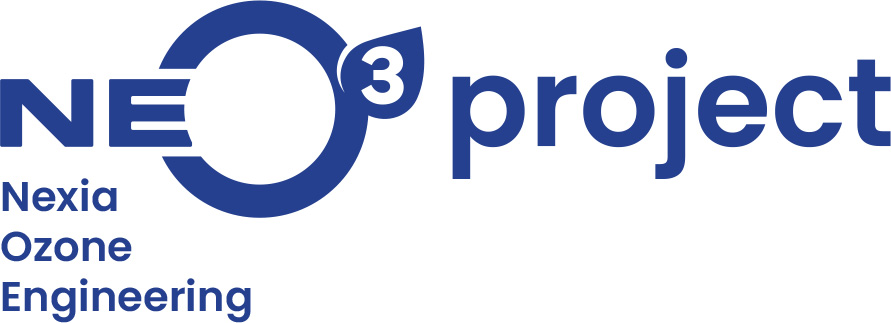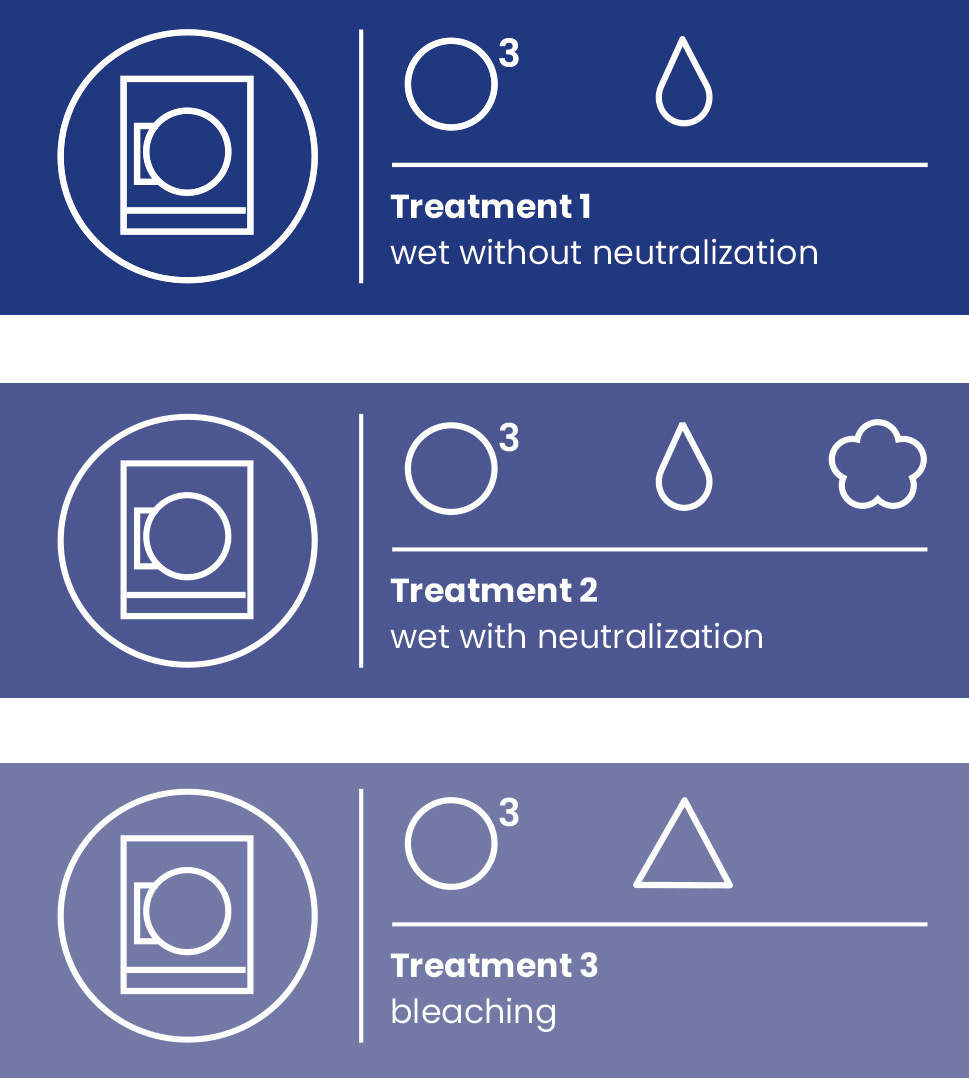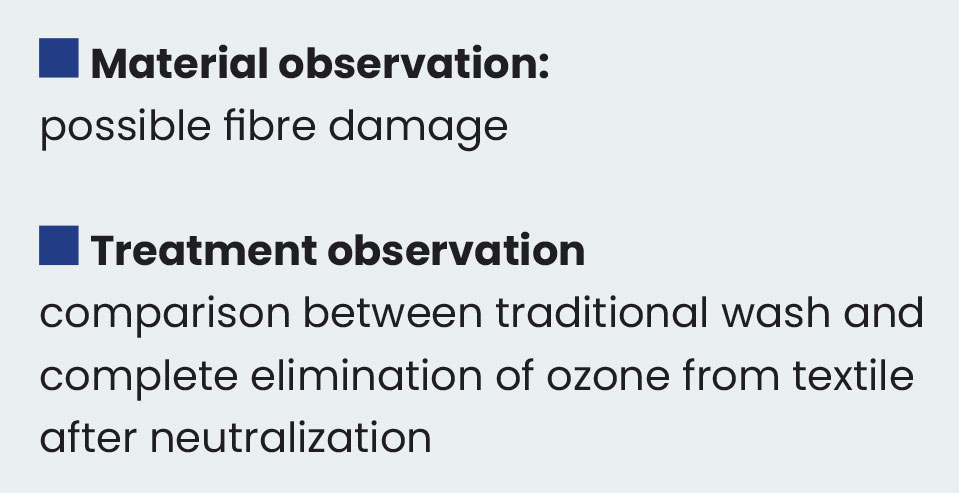
Denim is one of the most widely used textiles globally thanks to its comfort and overall resistance. With the wide variety of techniques and processes used in producing fashion that meets client needs, it is unfortunately well recognised the large amount of chemicals and water that are required in the production cycle. Conventional finishing treatments of denim must therefore be replaced, phased out with other technologies that transition toward ecological and sustainable procedures.
To that end, new finishing processes which produce specific effects on denim have been introduced. We are, of course, talking about ozone, one of the latest, state-of-the-art techniques which reduce both water and chemicals, considered one of the best technologies for substituting traditional, environmentally damaging whitening and aging processes often carried out on denim. Textile performance and the health of clients must, however, be central to production and facilitate, in turn, an improved, objective and transparent communication with the buyer him/herself.


For this very reason, Neo Project is based on the study of possible short and long-term damaging effects regarding the mechanical properties of denim material as well as verifying the possible presence of ozone upon termination of the washing process.

This passport will contain information that promotes re-usage and recycling possibilities. The European Community is demanding that products last longer so as to slow down the consumption of raw materials and reduce water consumption, recognising that product waste too is increasingly unmanageable. Amongst the first industrial sectors to use this Digital Passport are the electronics, battery and automobile and textiles-clothing industries.